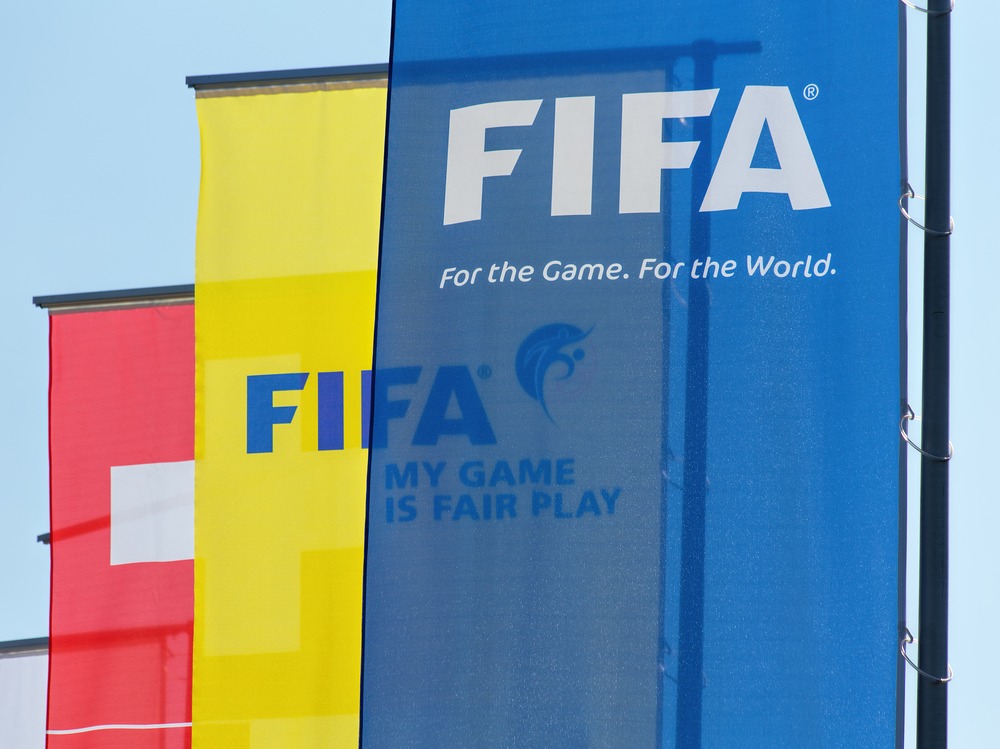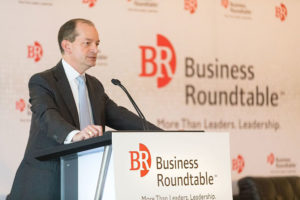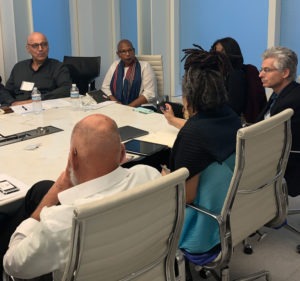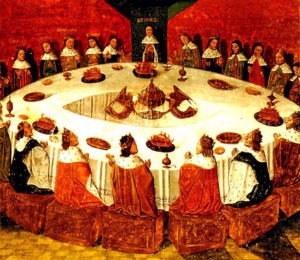
August 13, 2015; Wall Street Journal
Can FIFA recover from Sepp Blatter’s history of corrupt leadership, culminating in the indictment of 14 FIFA executives by the U.S. Justice Department in May? What would you do if you had been part of FIFA’s apparatus—which, as has been well documented over the years, especially since the May indictments, has been revealed as an ethically compromised organization?
One step is to try to stanch any further organizational bleeding. Fourteen indictments of individuals is one thing, but if FIFA itself is indicted as an organization, it could result in freezing FIFA’s assets and other actions that could bring much of FIFA’s functioning to a halt. Consequently, FIFA’s leadership taking pains to stress that the organization is cooperating fully with the U.S. authorities and has even contracted with a Washington-based firm for an internal investigation. The investigation is under the direction of FIFA’s general counsel, Marco Villiger, which of course raises suspicions. According to his LinkedIn profile, Villiger appears to have worked in FIFA’s legal department since 2004, heading FIFA’s legal division since 2007. According to Der Spiegel, Villiger appears to have altered a supposedly independent report by a law professor from Basel University (hired by Blatter) ostensibly to come up with organizational reforms; Villiger’s edits were to remove some parts of the report that were critical of Blatter, even though the professor, Mark Pieth, generally effused about Blatter’s leadership and his essential role going forward. Would you trust an internal investigation led by one of FIFA’s top lawyers during the decade of well-documented bribery and other shenanigans?
However, a problem with any pending internal and external inquiries is getting the cooperation of executives within FIFA. If individuals refuse to cooperate, U.S. authorities could expand or deepen their investigation, according to Matthew Futterman and Joshua Robinson in the Wall Street Journal, but we wonder what the Department of Justice wouldn’t be looking at now that they would if FIFA executives stiff the lawyers. For example, six of the seven FIFA brass who were arrested in Zurich in May are fighting extradition from Switzerland, hardly a move that conveys a sense of cooperation.
Another strategy that FIFA has taken is a plan for organizational reforms. Just last week, FIFA recruited a former director general of the International Olympic Committee, François Carrard, to convene a task force to propose reforms to FIFAs governance and accountability. The timetable has Carrard’s task force making its recommendations in February, the same month when elections are scheduled to replace Blatter, who resigned even though he was not indicted. A 14-year director of the IOC who resigned in 2003, Carrard was actively involved in efforts to clean up the IOC after the bidding scandal involving the Salt Lake City winter Olympics. However, the IOC itself has a history of bribery and corruption preceding the Salt Lake City scandal, so it’s not necessarily an organization whose reputation significantly improves on FIFA’s.
Sign up for our free newsletters
Subscribe to NPQ's newsletters to have our top stories delivered directly to your inbox.
By signing up, you agree to our privacy policy and terms of use, and to receive messages from NPQ and our partners.
A key step would be replacing Blatter. Although he formally announced his resignation, he is still in control until the election next February. In the past, reform candidates, such as there were, to challenge Blatter faded out of sight quickly. To run for the office of FIFA president, candidates have until October 26th to secure the support of five national federations (out of the 209 that belong to FIFA), which would put them officially in the running. The leading candidate appears to be Michael Platini, the head of the European soccer federation and a former midfielder for the French national team, who is presenting himself as experienced and knowledgeable enough to push through a reform agenda. Other potential contenders include South Korean billionaire Chung Mong-joon, whose family controls the Hyundai corporate empire, Prince Ali bin al-Hussein of Jordan, who ran against Blatter in May but inexplicably dropped out of the election, and others from Liberia and Brazil.
Will Platini be a credible improvement over Blatter, given that he has been a strident defender of voting for Qatar for the 2022 World Cup, the decision that has been at the center of the corruption scandal? Already there has been controversy. Platini met with Prince Ali and they immediately disagreed about plans for reform. Platini called for speeding up the deliberations of the reform task force. Platini and Blatter will be among the FIFA executives who will be choosing the chairman of the reform task force, while Prince Ali (joined by Transparency International and FIFA sponsor Coca-Cola) favors a completely independent chair. (Visa and McDonald’s also subsequently came out for an independent body to work on a reform agenda.) Under the Platini plan, the job seems to be slated to go to Domenico Scala, who is already serving as FIFA’s audit and compliance committee chairman. The advocacy group New FIFA Now described the possible selection of Scala for the task force as “laughable,” and Scala himself has begun to distance himself from the task force position.
New FIFA Now has published an agenda for reform that starts with the kind of independent body that Prince Ali and the three corporate sponsors have recommended. Moreover, they want the task force to be headed by an “eminent person.” The four tasks New FIFA Reform would have the independent task force address four issues:
- Developing the constitution, statutes, codes and operational policies and practices of FIFA;
- Developing new governance arrangements including membership and terms of reference of committees;
- Conducting elections for an executive committee including a new president; and
- Appointing key senior executive staff.
The current FIFA dynamic doesn’t quite fit the New FIFA Now recommendations. As it currently stands, the reform task force will be making recommendations on governance without the power to put those recommendations into action. The FIFA elections will be conducted under the existing FIFA structure—with Blatter still in power. And there seems to be no plan under consideration that will shift the appointment of senior staff to the task force. In other words, the ethically challenged FIFA of today, the ethically challenged FIFA that is led by Sepp Blatter, is still in charge of running the elections and deciding what to do or not do with the reform task force’s recommendations.
Can a deeply corrupt organization clean up from the inside—with the corrupted leadership still in charge? That’s the fundamental question facing Villiger, Carrard, Platini, Prince Ali, and the U.S. Department of Justice.—Rick Cohen













